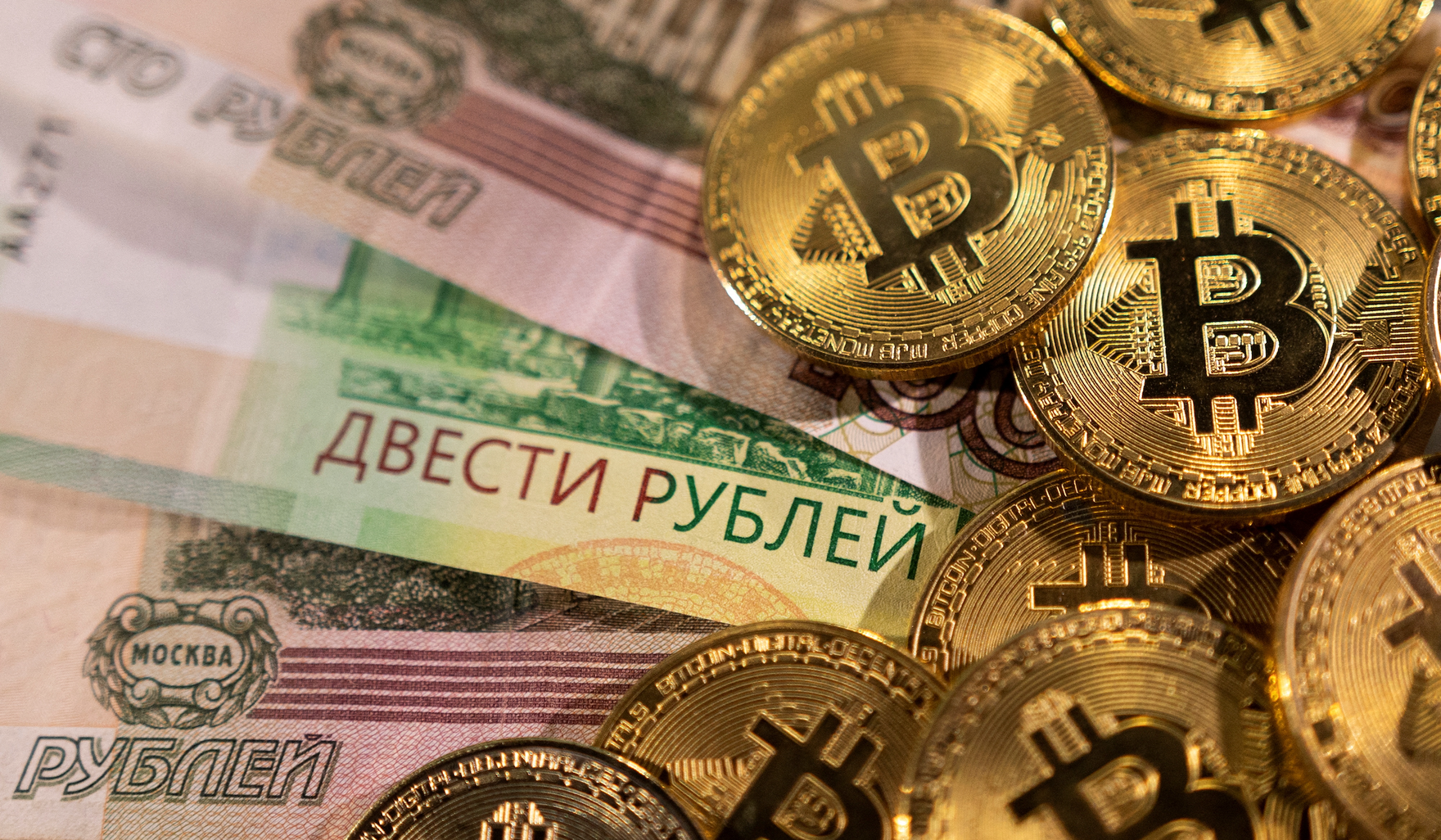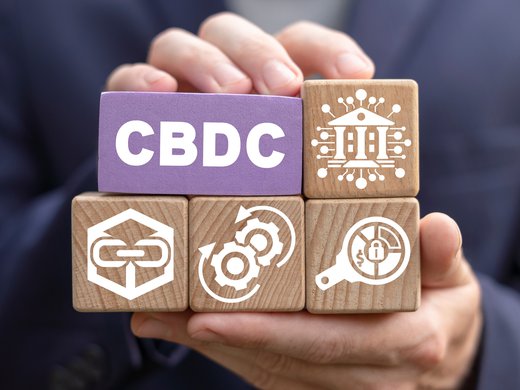What began as a small convoy of truck drivers protesting COVID-19 vaccine mandates in late January quickly grew to a large-scale protest blocking nearly $350 million a day in trade and crippling the transport of vital supplies across the US-Canada border for more than three weeks. After struggling to disband the protestors, Canadian Prime Minister Justin Trudeau invoked the Emergencies Act for the first time since its passage in 1988, compelling financial institutions to freeze the assets of protesters and urging local cryptocurrency exchanges not to process transactions from 253 bitcoin addresses suspected of supporting their efforts. Cryptocurrency promoters responded with outrage, siding with truckers, and calling Trudeau’s actions authoritarian, even comparing the Canadian prime minister to Hitler.
Days later, Russian President Vladimir Putin plunged the world into geopolitical instability with a full-scale unprovoked military invasion of Ukraine, resulting in mounting civilian causalities and sparking the biggest refugee crisis since the Second World War. Fearing the ramifications of a military response, governments around the world imposed an array of targeted financial sanctions, freezing and seizing the assets of Russian politicians and oligarchs, blocking transactions with Russia’s central bank and removing others from the SWIFT international payments network. Companies, including legacy payment processors Mastercard and Visa and tech platforms Apple Pay and Google Pay, followed with similar measures. However, as with the Canadian truckers, cryptocurrency exchanges have resisted similar steps, even when implored by Ukrainian officials, with one CEO remarking that sanctioning Russian users would “fly in the face of the reason crypto exists” — namely, for the “freedom to transact.”
As recently summarized by one journalist, the freedom to transact is a core tenet of crypto-libertarian ideology whereby “the individual is sovereign, and the state has no authority to limit what a person can do with their assets, digital or otherwise,” and money is magically apolitical. An extension of the same school of thought that elevates economic freedom above all other social, cultural and political interests, the freedom to transact is increasingly invoked by cryptocurrency promoters and right-wing politicians, who share similar ideological leanings, in response to measures by governments and private sector actors to impose political consequences through economic means, including in situations such as the Canadian truckers’ blockade or Russia’s recent assault on Ukraine.
Often framed by its champions as a matter of constitutional or human rights law, the freedom to transact is not articulated in any legally binding international human rights treaties such as the International Covenant on Civil and Political Rights or the International Covenant on Economic, Social and Cultural Rights (the pillars of international human rights law), nor is it found in regional instruments such as the European Convention on Human Rights, the American Convention on Human Rights or the African Charter on Human and Peoples’ Rights. It is also absent from national constitutions, despite cryptocurrency promoters sometimes alleging the contrary. Some argue that it derives from a combination of rights related to the freedom of speech or expression and the right to privacy, such as the first and fourth amendments of the US Constitution, or assert that it can be inferred, as such freedom is necessary for the exercise of all other rights and freedoms.
This is not to say that a freedom to transact could never become enshrined as a right or that rights do not expand or evolve — they do. But even then, it most likely would not be absolute, as rights rarely are.
But too often, the freedom to transact is touted or treated as absolute, even where certain transactions may gridlock international trade or finance human rights atrocities. This obsession with transactional freedom among crypto-libertarians mirrors the distorted free speech absolutism promulgated by cyber-libertarians (an extreme view that has demonstrably silenced and endangered women and minorities online). Just as John Perry Barlow declared the internet to be “a world where anyone, anywhere may express his or her beliefs, no matter how singular, without fear of being coerced into silence or conformity,” crypto-libertarians espouse a kind of transactional absolutism whereby the individual’s “negative” freedom to transact without the interference of third parties is primary to all other rights and freedoms, whether individual or collective (ignoring that “negative” rights and freedoms often require positive or affirmative interventions by the state).
This is not to say that a freedom to transact could never become enshrined as a right or that rights do not expand or evolve — they do. But even then, it most likely would not be absolute, as rights rarely are. Even the First Amendment or freedom of expression, oft-cited by transactional absolutists as analogous to a freedom to transact, allows for permissible restrictions and limitations on speech or derogations to protect national security, public order or public health and morals, respectively. Those who tout the primacy of the freedom to transact misunderstand the nature of rights, specifically their interrelatedness. Human rights are indivisible and interdependent, meaning that one set of rights cannot be fully realized without the other. What good is the individual’s freedom to transact when other basic rights and freedoms are not ensured, whether because of acts of war or of other atrocities that require a collective response or intervention?
Just as human rights are interdependent, they are also frequently in tension. Human rights law seeks to reconcile these tensions, particularly when the rights and interests of the individual are at odds with the rights and interests of the collective, as may be the case in a global pandemic or cross-border conflict, by allowing for derogations or limitations where in accordance with law, necessary and proportionate. Moreover, rights are meaningless without protection from non-infringement. Where crypto-libertarians might think of protection as an individual matter (for example, secured by force or with arms), human rights take a more social view of protection as requiring affirmative steps by state and non-state actors alike, strong institutions, and international collaboration and cooperation, especially in the case of economic, social and cultural rights.
The mounting complex cross-border challenges that we face, whether due to new technologies, global pandemics or war, will often require collective action and coordination, and there are times when the interests of the collective must trump those of the individual. Human rights law, like other legal frameworks, is designed to help us recognize and resolve these tensions when they arise. The every-man-for-himself ethos of crypto-libertarians who seek to disrupt, disintermediate and destabilize institutions directly undermines our ability to respond to such crises as a society, thereby endangering all other individual rights and freedoms. Therefore, we must look beyond recent events in Canada or Ukraine to recognize what’s really at stake if we fail to counter the growing libertarian obsession with a “freedom to transact.”



